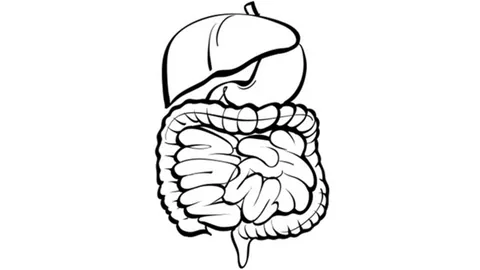
Unlocking Heart Health: How Estrogen Therapy Could Be the Key
2025-05-02
Author: Siti
Revolutionary Findings in Estrogen Therapy!
A groundbreaking study published in *Obstetrics and Gynecology* has revealed that long-term estrogen-based hormone therapy could enhance heart health in menopausal women. This revelation comes amidst ongoing debates about the safety of hormone treatments during menopause, particularly their cardiovascular impacts.
Lead researcher Dr. Matthew Nudy, an assistant professor of medicine at Penn State College of Medicine, emphasizes that the perspective on hormone therapy is evolving. "The pendulum has been swinging back and forth about whether hormone therapy is safe for menopausal women—especially concerning heart disease," he noted. He advocates for the safety of hormone therapy in younger menopausal women, particularly for those within a decade of menopause onset.
Research Breakdown: Who Was Studied?
The study involved postmenopausal women aged 50 to 79. Participants provided fasting blood samples at baseline and year one, with some returning for additional samples at year three, examining various cardiovascular risk markers.
Understanding the Numbers: Key Findings
The study identified low-density lipoprotein cholesterol (LDL-C) as a primary outcome measure. Secondary outcomes included total cholesterol, high-density lipoprotein cholesterol (HDL-C), triglycerides, and insulin levels.
Participants were split into groups: one receiving only conjugated equine estrogens (CEE) and the other receiving CEE plus medroxyprogesterone acetate (MPA). The groups showed intriguing differences, particularly in demographics and baseline health conditions.
Impact of Treatment: LDL-C Reduction
The results are promising—patients on CEE alone experienced an 11% reduction in LDL-C within a year compared to the placebo group, with continued benefits observed up to six years. Meanwhile, those on CEE+MPA also showed notable reductions, although effectiveness appeared to wane over time.
Boosting the Good Cholesterol!
The study also highlighted improvements in cardiovascular biomarkers. While triglycerides showed no improvement, both treatment groups enjoyed increases in HDL-C, signifying a healthier cholesterol profile overall. In particular, American Indian and Asian women saw significant reductions in lipoprotein(a), which is crucial for heart health.
What This Means for Women!
These findings could serve as a vital resource for younger menopausal women weighing the option of hormone therapy. While benefits are evident, Dr. Nudy points out that hormone therapy is currently not FDA-approved to mitigate risks for coronary artery disease or stroke.
Conclusion: The Future of Hormone Therapy and Heart Health!
As we continue to uncover the potential of estrogen therapy, this study paves the way for informed decisions about heart health in menopausal women. Could this be the breakthrough we've been waiting for? Only time—and further research—will tell!




 Brasil (PT)
Brasil (PT)
 Canada (EN)
Canada (EN)
 Chile (ES)
Chile (ES)
 Česko (CS)
Česko (CS)
 대한민국 (KO)
대한민국 (KO)
 España (ES)
España (ES)
 France (FR)
France (FR)
 Hong Kong (EN)
Hong Kong (EN)
 Italia (IT)
Italia (IT)
 日本 (JA)
日本 (JA)
 Magyarország (HU)
Magyarország (HU)
 Norge (NO)
Norge (NO)
 Polska (PL)
Polska (PL)
 Schweiz (DE)
Schweiz (DE)
 Singapore (EN)
Singapore (EN)
 Sverige (SV)
Sverige (SV)
 Suomi (FI)
Suomi (FI)
 Türkiye (TR)
Türkiye (TR)
 الإمارات العربية المتحدة (AR)
الإمارات العربية المتحدة (AR)